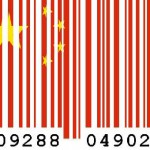New golden age for science fiction in China →
Rachel Cheung writes about the Chinese sci-fi scene, for the South China Morning Post.
It’s not the first golden age of sci-fi in China, though. Wang Yao says that was between 1978 and 1983 during reforms initiated by late Deng Xiaoping. “It was thought that science fiction could cultivate a scientific spirit, and the authorities assigned authors to write books in the genre,” says Wang.
More than 30 years later, the new golden age is very different but also being supported by the government. In its science and technology progress plan, published last year, the State Council cited a need to improve the population’s scientific literacy. Policies include the establishment of national science fiction awards and international sci-fi festivals.
…
Although investors are eyeing sci-fi’s entertainment industry potential, the literature itself is not so highly valued. “The payment writers receive for fiction writing is very small. I also write for fashion magazines, which pay a lot more,” says Regina Wang. Since it is impossible to make ends meet writing sci-fi, most authors do it simply as a hobby.
… > Although the Hugo Awards have brought global attention to the Chinese sci-fi scene, as an industry it still has a long way to go.
“Unlike Western countries, we do not have a long tradition of a cultural and creative industry,” says Wang Yao. There are only about 100 writers, publishers and filmmakers in the Chinese sci-fi industry, compared with more than 4,000 sci-fi writers in the United States, she adds.
That's a surprising discrepancy to me, especially given the overall population advantage that China has over the United States. That, combined with the government sponsorship of both "golden ages" of Chinese science fiction, makes me wonder how much staying power the genre has in Chinese culture. SF is great at shining a light on society, but only if it's coming from a place of genuine enthusiasm and grass roots support.
This entry was tagged. China Science Fiction

